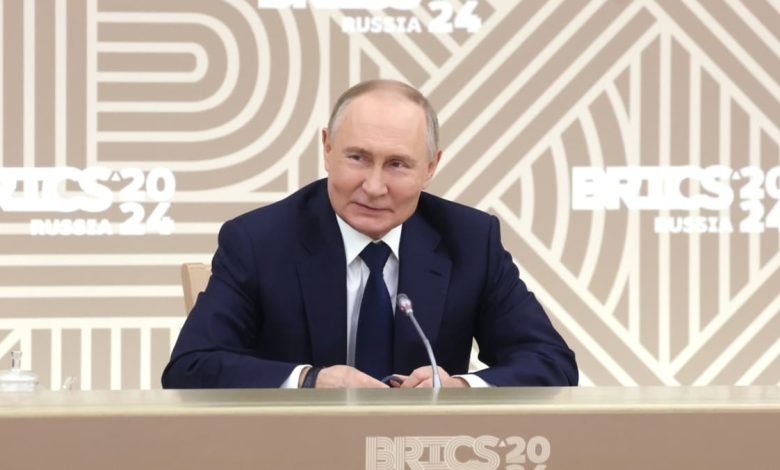Putin seeks to rival Western power with high-profile summit

The Kremlin has said it wants global affairs to be guided by international law, “not on rules that are set by individual states, namely the United States”.
“We believe that BRICS is a prototype of multipolarity, a structure uniting the Southern and Eastern hemispheres on the principles of sovereignty and respect for each other,” Kremlin aide Yuri Ushakov said.
“What BRICS is doing is gradually – brick by brick – building a bridge to a more democratic and just world order,” he added.
“CRAZY GOALS”
The West believes Russia is using the group to expand its influence and promote its own narratives about the Ukraine conflict.
Presenting his “victory plan” to lawmakers this week, Ukrainian President Volodymyr Zelenskyy warned other countries could feel emboldened if Putin wins on the battlefield in Ukraine.
“If Putin achieves his crazy goals – geopolitical, military, ideological and economic – it will create an overwhelming impression among other potential aggressors, particularly in the West, Indo-Pacific and Africa, that wars of aggression could be beneficial for them as well,” he said.
Starting with four members when it was established in 2009, BRICS has since expanded to include several other emerging nations such as South Africa, Egypt and Iran.
Turkey, a NATO member with complex ties to both Moscow and the West, announced in early September that it also wanted to join the bloc.
According to Ushakov, all BRICS members will be represented in Kazan by their leaders, except Saudi Arabia, which will send its foreign minister.
The absence of Crown Prince Mohammed bin Salman, the Kingdom’s de facto leader, has fuelled speculation about disagreement between two of the world’s biggest energy heavyweights.
“It is clear that the Kremlin wanted to see the Crown Prince,” Kalachev said, but added that on the whole, “everything is going rather well for the Kremlin”.

